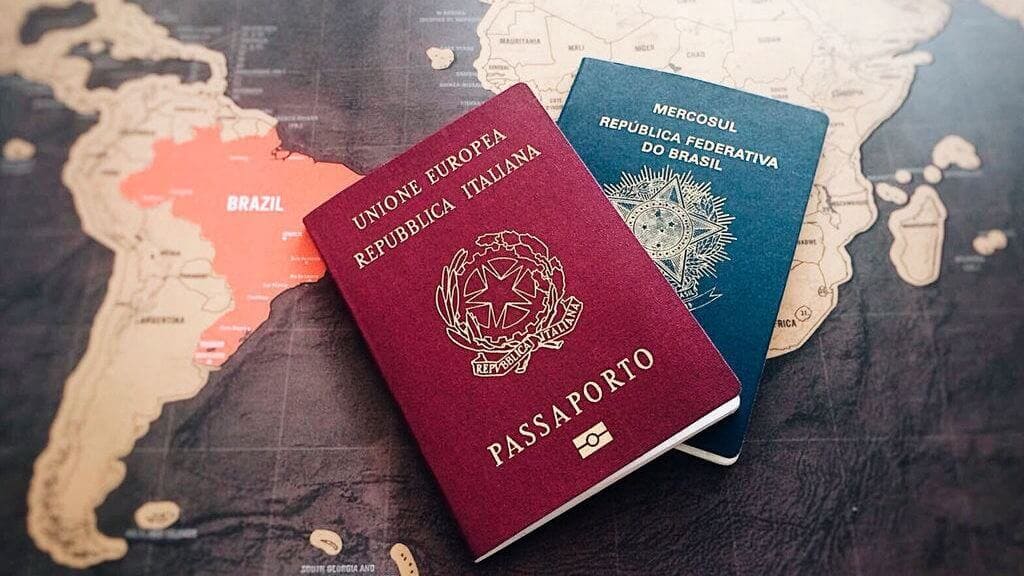The state of São Paulo has about 287,000 Italian-Brazilian voters who will be able to participate in this year’s elections for the renewal of the Italian Parliament, according to a survey conducted by the Union of Italians in the World (UIM) association.
The voting, which had to be brought forward to September, will define new names for the Italian Chamber of Deputies and Senate.
The number of voters in São Paulo is equivalent to 66.7% of the total 430,000 residents in Brazil that are eligible to vote.

According to the Union of Italians in the World, in the state, Ribeirão Preto and Campinas stand out with large concentrations of eligible people – the number in each city was not disclosed.
Two groups of residents in Brazil will be able to vote: native Italians and descendants with Italian citizenship.
Daniela Dardi, vice-president of the UIM, says that the number of Italian-Brazilians eligible to vote has been increasing in recent years, with the consulate granting new citizenship.
“Voting is optional, but it is very interesting that people participate in the problems of the Italian and Italian-Brazilian people. Every complaint is unfounded if the person doesn’t fight for the right to vote,” she says.
CANDIDATES FROM OUTSIDE ITALY
Since 2006, elections in Italy have also had representatives from outside the country. The districts are separated by constituency as follows:
- Europe (including the Asian territories of Russia and Turkey);
- South America;
- North and Central Americas;
- Africa, Asia, Oceania, and Antarctica.
For South America, where a total of 1.8 million voters live, one seat in the Senate and two in the House are reserved. These must be occupied by candidates running in this constituency, so the votes must be for one of these candidates.
Besides Brazil, another prominent member of the South American district is Argentina, which has about 760,000 voters. In other words, the two countries have 66% of the South American electorate.
In August, two-time Formula 1 champion Emerson Fittipaldi and politician Andrea Matarazzo launched themselves as candidates for the Italian Senate. See all the names:
BRAZILIAN CANDIDATES FOR THE ITALIAN SENATE:
- Andrea Matarazzo
- Marcelo Zovico
- Emerson Fittipaldi
- Luciana Laspro
BRAZILIAN CANDIDATES FOR THE ITALIAN HOUSE:
- Fabio Porta
- Luiz Molosi
- Luiz Roberto Lorenzato
- Renata Bueno
- Andrea Dorini
- Thiago Trocoli
HOW TO VOTE
The vote of Italians and descendants living outside Italy is registered by mail. Last week, the Post Office began delivering ballots, where voters can nominate one candidate for the Senate and two for the House of Representatives.
According to the Union of Italians in the World association, however, the ballots will be automatically delivered only to those in good standing with the consulate.
Those not in good standing will be able to vote but must request their ballots from the consulate.
IN SUMMARY, THE PROCESS IS AS FOLLOWS:
- The voter receives two envelopes at his residence: one with the voting kit and another to be returned with the ballots;
- In the voting kit, there will be two ballots, one to choose two candidates for the House of Representatives and the other to indicate the candidate for the Senate;
- On each ballot, the voter should place an “x” in the party of their choice and write the names of the candidates;
- The completed ballots should be placed in the second envelope, which is already postage paid for return by mail.
The voter must post the sealed correspondence in a post office or a ballot box in the consulates until September 22, 4 PM.
In Italy, the voting day is on September 25.
WHY WERE THE ELECTIONS IN ITALY BROUGHT FORWARD?
On July 21 this year, former Italian Prime Minister Mario Draghi resigned after his national unity coalition government collapsed.
By the rules, when the ruling bloc loses its majority in Parliament, general elections are brought forward to define a new majority in the legislature that will form the government.
Draghi lost the support of the 5 Star Movement, and his support base was insufficient in Parliament.
With information from G1

